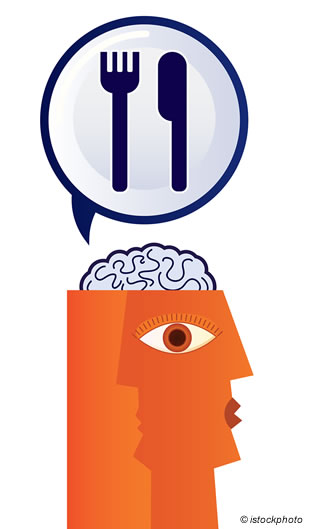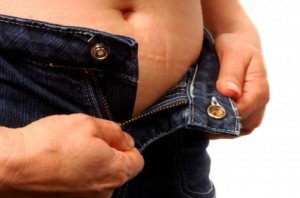 Studies released today explore the neurological component of dietary disorders, uncovering
Studies released today explore the neurological component of dietary disorders, uncovering
evidence that the brain’s biological mechanisms may contribute to significant public health challenges — obesity,
diabetes, binge eating, and the allure of the high-calorie meal. The findings were presented at Neuroscience 2012,
the annual meeting of the Society for Neuroscience and the world’s largest source of emerging news about brain
science and health.
Scientists are ultimately searching for new ways to treat diet-related disorders while raising awareness that diet and
obesity affect mental as well as physical health.
Today’s new findings show that:
• Being obese appears to affect cognitive function, requiring more effort to complete a complex decisionmaking task (Timothy Verstynen, PhD, abstract 802.20, see attached summary).
• Brain images suggest that when people skip breakfast, the pleasure-seeking part of the brain is activated by
pictures of high-calorie food. Skipping breakfast also appears to increase food consumption at lunch,
possibly casting doubt on the use of fasting as an approach to diet control (Tony Goldstone, MD, PhD,
abstract 798.02, see attached summary).
• A study in rats suggests they may be able to curb binge-eating behavior with medication used to keep
substance abusers clean and sober (Angelo Blasio, PhD, abstract 283.03, see attached summary).
Other recent findings discussed show that:
• Amidst growing concern that diet-related metabolic disorders such as diabetes impair brain function, an
animal study reports that a high-sugar diet may affect insulin receptors in the brain and dull spatial
learning and memory skills. But omega-3 supplements may at least partially offset this effect (Rahul
Agrawal, PhD, see attached summary).
• Evidence from a rat study suggests that a new compound under development to treat compulsive eating
disorders and obesity may be effective at blocking a specific receptor in the brain that triggers food
cravings and eating when activated by “food related cues,” such as pictures or smells, irrespective of the
body’s energy needs (Chiara Giuliano, PhD, see attached summary).
“These are fascinating studies because they show the brain is an often overlooked yet significant organ in an array
of dietary disorders,” said press conference moderator Paul Kenny, PhD, of The Scripps Research Institute in
Florida, an expert on addiction and obesity. “Many of these findings have the potential to lead to new interventions
that can help reduce the ranks of the obese, helping those who struggle daily with dietary decisions reassert control
over what they eat.”
This research was supported by national funding agencies such as the National Institutes of Health, as well as
private and philanthropic organ


